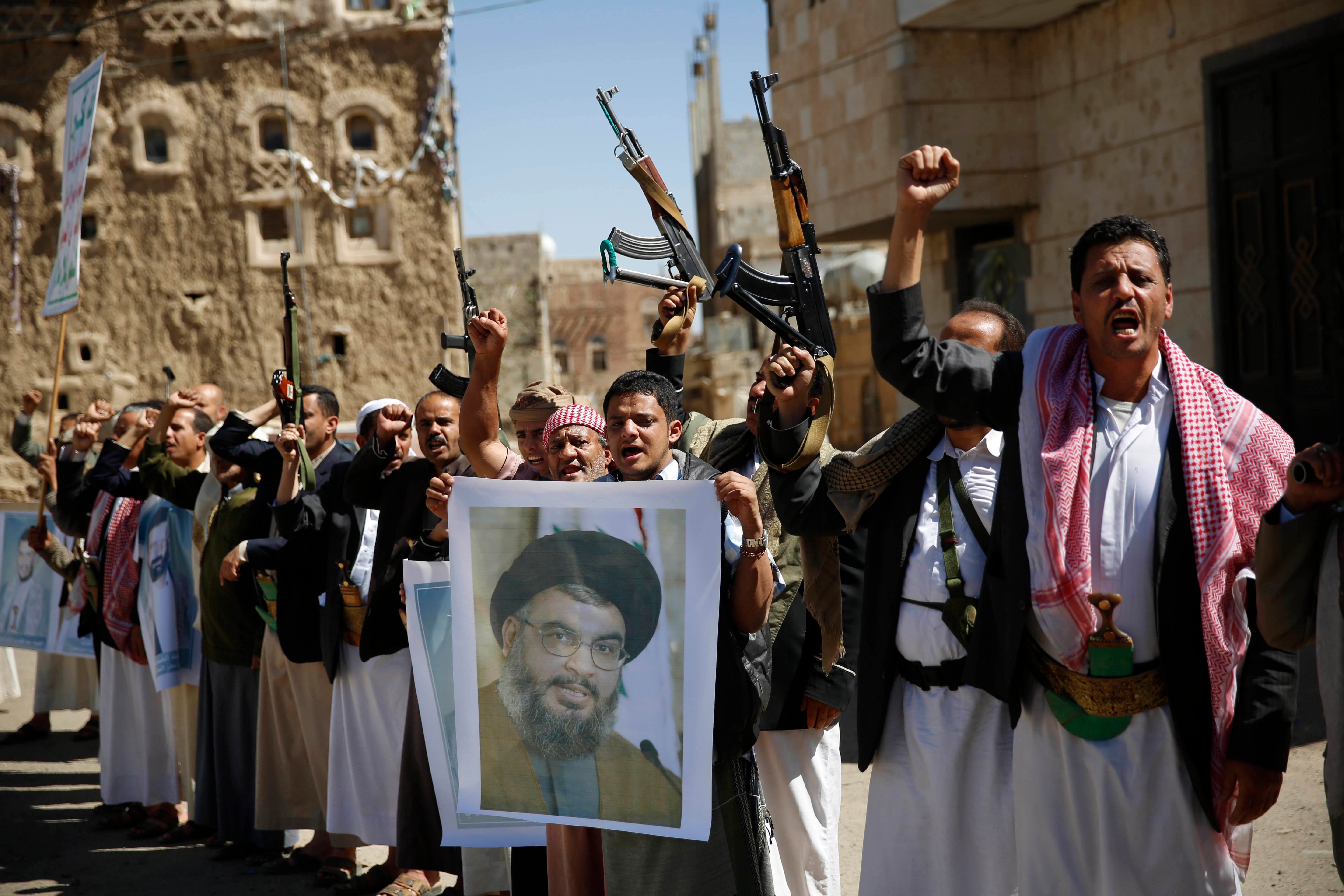The threat of an all-out war in the Middle East is intensifying.
Iranian-backed forces have launched a wave of attacks against American and Israeli targets in the region.
The White House accuses Tehran of provoking the crisis and prompting an American military response.
The Islamic mullahs in Tehran have dubbed it their “Axis of Resistance”.
“What the Supreme leader there calls a ‘ring of fire’ around Israel and that’s to build up these terror groups, these proxies for Iran, to do the fighting for Iran so Iran doesn’t have anybody come knocking on its doorstep,” said Richard Goldberg with the D.C.-based Foundation for Defense of Democracies
Since Hamas attacked Israel on October 7th, Iranian proxies in Lebanon, Syria, Iraq and Yemen have dramatically upped their strikes against Israel and U.S. interests in the region.
“Iran didn’t arm and equip and train and finance the Houthis, Hamas, Hezbollah, Shia militia groups in Iraq to use these resources for their own benefit at their own discretion. Iran did all that so it would have a capability through its proxies to act as it’s acting now,” said former U.S. National Security Advisor John Bolton.
The U.S. has been responding with attacks on the proxy militias.
“We have taken military action against sites in Iraq and Syria that are also tied to the IRGC, which supports these militias,” said White House Deputy National Security Advisor Jon Finer. “We have said quite clearly that we hold Iran responsible for the groups, the proxies that that it supports, and that it provides weapons to.”
Iran’s Revolutionary Guard forces, in just the past week, have also launched direct attacks on three of their close neighbors: Iraq, Syria, and Pakistan.
These multiple flash points are now causing concern of a much broader conflict pitting Iran and its allies against Israel and the United States.
“It just shows just how dangerous the situation is in the wider Middle East,” said Jon Gambrell with the Associated Press.
“It’s all part of their strategy and ultimately they want us to be fighting these tentacles so that we get bogged down and distracted when we really need to focus on is the head of the octopus and that’s Iran,” Goldberg told CBN News.
Iranian-backed militias have launched more than 140 rocket and drone attacks against U.S. troops in Iraq and Syria since October 7th.
The most serious attack happening at the Al-Assad Airbase in Western Iraq this past weekend.
CENTCOM reports that several U.S. personnel sustained traumatic brain injuries.
“It was a very serious attack using a capability of ballistic missiles that pose a genuine threat,” said Finer.
Richard Goldberg, who handled the Iranian portfolio at the White House National Security Council, says such actions show Iran is clearly undeterred and has no reason to rein in its proxies, whether it’s Houthi rebels targeting shipping vessels in the Red Sea or militias attacking U.S. troops in Syria.
“Remember, Iran is looking at the big picture here and the Biden administration’s policy is still to give money to Iran while all of this is going on. We have $10 billion flowing from a Biden sanctions-waver today that the Iranians are benefiting from,” Goldberg said.




























![[Video] More – Aghogho » GospelHotspot](https://gospelhotspot.net/wp-content/uploads/2024/04/More-Aghogho.jpeg)
















